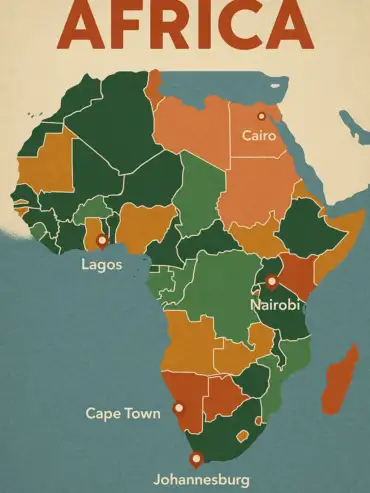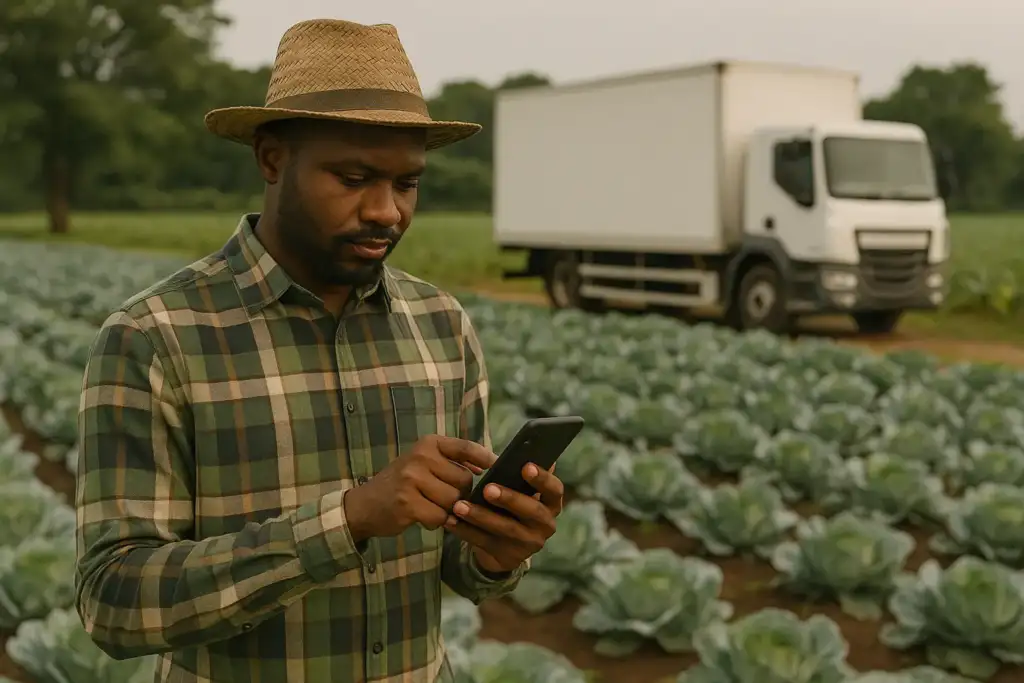Opportunities and Barriers for African Startups in 2025
Africa’s startup ecosystem is one of the most dynamic in the world. Driven by a young population, untapped markets, and rapid digital adoption, the continent is producing innovations that solve real problems. Success stories like Flutterwave in Nigeria and M-Pesa in Kenya show how African fintech can leapfrog traditional systems and fill financial gaps.
Despite a global funding slowdown, African startups raised $3.4 billion in 2023. By 2025, South Africa and Kenya continue to lead, showing that investor confidence remains strong. But beneath the optimism are structural challenges: early-stage funding gaps, infrastructure bottlenecks, policy instability, and a shortage of specialized talent.
Africa’s Leading Startup Hubs in 2025
-
Lagos (Nigeria): The continent’s fintech powerhouse, home to unicorns like Flutterwave and Moniepoint.
-
Nairobi (Kenya): Dubbed “Silicon Savannah,” with world-class mobile money penetration and strong innovation culture.
-
Cape Town (South Africa): Known for talent depth, infrastructure, and a growing health-tech scene.
-
Cairo (Egypt): A North African leader, investing heavily in digital infrastructure and fintech.
-
Johannesburg (South Africa): A diverse talent pool and growing support for multi-sector startups.
Snapshot of 2025 data:
-
South Africa: Startups raised $344 million in H1 2025, about 25% of Africa’s total. It leads in deals above $1 million.
-
Kenya: Grew about 33% year-on-year, raising $227 million in H1 2025, supported by progressive policies like the Startup Bill.
-
Egypt: Expanding fast, particularly in fintech and digital infrastructure.
These hubs benefit from stronger institutions, relative infrastructure, and global investor networks. Still, opportunities and barriers remain.
Opportunities for African Startups
-
Large and scalable markets
-
Lagos’s 20 million residents give startups instant scale.
-
Nairobi’s widespread use of mobile money makes it fertile ground for fintech.
-
-
Rising investor interest
-
Early-stage funding in Sub-Saharan Africa grew by 227% (2018–2022).
-
Unicorns like Flutterwave and Moniepoint prove African solutions can achieve global status.
-
-
Supportive startup ecosystems
-
Nairobi’s accelerators and innovation culture nurture early ideas.
-
Lagos is developing infrastructure, such as free zones like Itana, to reduce friction for founders.
-
-
Untapped sectors beyond fintech
-
Health-tech, agritech, logistics, and edtech hold enormous potential.
-
Example: Twiga Foods (Kenya) has transformed agricultural supply chains.
-
Barriers Facing Startups
-
Infrastructure gaps
-
Unreliable power, costly internet, and poor logistics raise operating costs.
-
-
Regulatory uncertainty
-
Shifting policies, like Nigeria’s crypto ban, disrupt entire sectors.
-
Cross-border expansion is slowed by fragmented rules.
-
-
Unequal access to funding
-
Capital is concentrated in Nigeria, Kenya, South Africa, and Egypt, leaving smaller and Francophone markets behind.
-
-
Talent shortages and brain drain
-
Skilled engineers, product managers, and regulatory experts often leave for better pay and stability abroad.
-
-
Market fragmentation
-
Africa’s 54 countries mean diverse languages, regulations, and consumer behaviors, making scaling costly and complex.
-
Real-World Snapshots
-
Cape Town: Strong in fintech and digital health, supported by hubs like CiTi.
-
Nairobi: Home to high-profile startups like Twiga Foods, with some of the continent’s highest VC funding per capita.
-
Lagos: Early-stage funding valued at $8.43 billion in recent estimates, home to unicorns reshaping payments and lending.
Key Takeaways for Founders
If you’re building or backing a startup in Africa, keep in mind:
-
Focus on solving real, local problems at scale.
-
Anticipate regulatory uncertainty and design flexible models.
-
Build lean operations that can survive infrastructure challenges.
-
Leverage local networks and data to gain trust.
-
Expect turbulence — resilience is non-negotiable.
Discussion Starter: Why Don’t More African Startups Scale Globally?
Despite vibrant ecosystems, few African startups break into global markets. Challenges include:
-
Funding gaps at growth stage.
-
Weak infrastructure and fragmented regulation.
-
Talent drain.
-
Perception of risk by global investors.
👉 For website readers: What do you think is the biggest barrier to global expansion?
👉 For social media: If you could fix one challenge holding African startups back, what would it be?
Your perspective can shape the conversation around Africa’s digital future. 🚀




